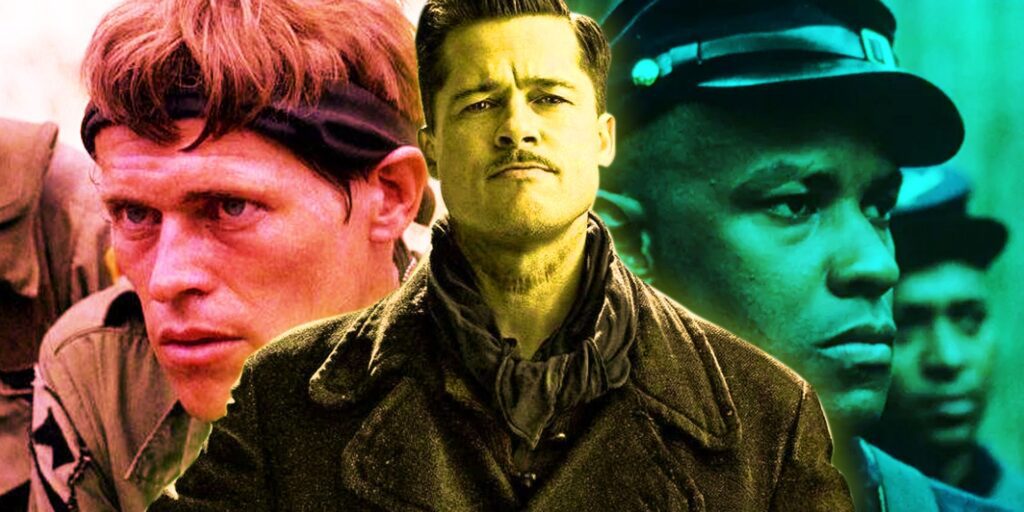In conclusion, Platoon is a classic war film that continues to resonate with audiences today due to its uncompromising depiction of the horrors of war, its exploration of complex moral and ethical issues, and its timeless themes of innocence and corruption. The film’s raw and visceral portrayal of combat, combined with its nuanced characters and powerful storytelling, make it a must-see for anyone interested in the impact of war on the human psyche. Platoon remains a powerful and important film that serves as a reminder of the sacrifices made by those who serve in conflicts around the world, and a cautionary tale about the consequences of violence and conflict.
Platoon: A Classic War Film that Still Resonates Today
Introduction
Platoon is a classic war film directed by Oliver Stone and released in 1986. Set during the Vietnam War, the film follows a young soldier named Chris Taylor, played by Charlie Sheen, as he joins a platoon of infantrymen in the jungles of Vietnam. Platoon is known for its gritty and realistic portrayal of the horrors of war, as well as its exploration of complex moral and ethical issues. Despite being released over 30 years ago, Platoon continues to resonate with audiences today due to its powerful storytelling, strong performances, and timeless themes.
The Realities of War
One of the most striking aspects of Platoon is its unflinching portrayal of the brutal realities of war. From the very beginning of the film, the audience is plunged into the chaos and violence of the Vietnam War, as Taylor and his fellow soldiers are forced to navigate the dangers of combat while also dealing with the psychological toll of their experiences. The film does not shy away from showing the graphic and devastating effects of war, from the physical wounds suffered by the soldiers to the emotional trauma that haunts them long after the fighting has ended.
Through its visceral and intense battle scenes, Platoon effectively captures the sense of fear, confusion, and desperation that soldiers face in combat. The film shows how war can strip away a person’s humanity, turning them into killers or victims, and how the line between right and wrong can become blurred in the heat of battle. Platoon forces viewers to confront the harsh realities of war, and in doing so, it challenges our assumptions about heroism, sacrifice, and the nature of violence.
Complex Characters and Moral Dilemmas
Platoon also stands out for its richly drawn characters and its exploration of complex moral and ethical dilemmas. The soldiers in Taylor’s platoon are not portrayed as simple heroes or villains, but as flawed and multidimensional individuals who must grapple with difficult choices and conflicting loyalties. The film delves into the dynamics of power and authority within the platoon, as well as the ways in which war can corrupt and divide even the closest of comrades.
One of the central conflicts in Platoon is between two of the platoon’s leaders, Sergeant Barnes (played by Tom Berenger) and Sergeant Elias (played by Willem Dafoe). Barnes represents the ruthless and pragmatic side of war, willing to do whatever it takes to survive and achieve victory, while Elias embodies a more humane and compassionate approach, valuing the lives of his men above all else. The clash between these two characters highlights the moral ambiguity of war and forces viewers to confront the difficult choices faced by soldiers in combat.
Themes of Innocence and Corruption
At its core, Platoon is a film about the loss of innocence and the corruption of the human spirit in the face of war. Chris Taylor begins the film as a naive and idealistic young man, eager to prove himself in battle and serve his country with honor. However, as he witnesses the atrocities committed by his fellow soldiers and struggles to reconcile his own actions with his moral values, Taylor’s innocence is gradually eroded, leaving him disillusioned and broken by the end of the film.
Platoon explores the ways in which war can dehumanize and destroy those who participate in it, transforming them into monsters capable of unspeakable acts of violence. The film shows how the brutality and chaos of war can warp a person’s sense of right and wrong, leading them to commit acts of cruelty and betrayal that would have been unthinkable in peacetime. Platoon serves as a stark reminder of the toll that war takes on the human soul, and the ways in which it can forever change those who are caught in its grip.
Conclusion
In conclusion, Platoon is a classic war film that continues to resonate with audiences today due to its uncompromising depiction of the horrors of war, its exploration of complex moral and ethical issues, and its timeless themes of innocence and corruption. The film’s raw and visceral portrayal of combat, combined with its nuanced characters and powerful storytelling, make it a must-see for anyone interested in the impact of war on the human psyche. Platoon remains a powerful and important film that serves as a reminder of the sacrifices made by those who serve in conflicts around the world, and a cautionary tale about the consequences of violence and conflict.
